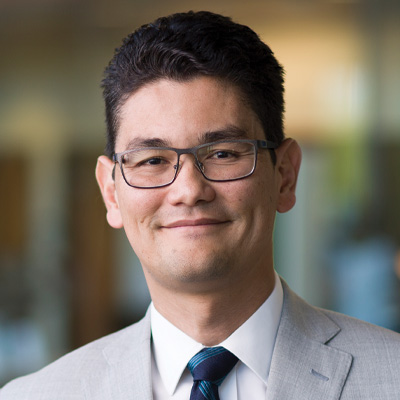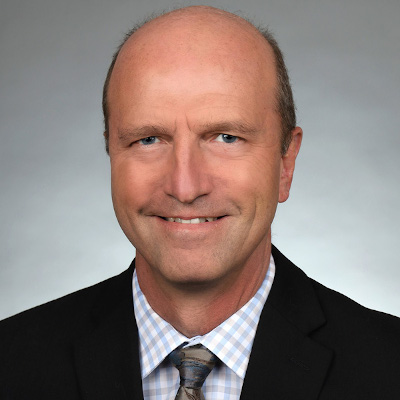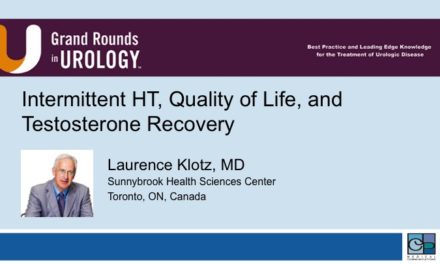E. David Crawford, MD; Alan H. Bryce, MD; and Bryan A. Mehlhaff, MD, presented “The Impact of a Restricted Supply of Lutetium (Pluvicto)” for the Grand Rounds in Urology audience in March 2023.
How to cite: Bryce, Alan H. Crawford, E. David. Mehlhaff, Bryan A. “The Impact of a Restricted Supply of Lutetium (Pluvicto)” March 2023. Accessed Jun 2025. https://grandroundsinurology.com/the-impact-of-a-restricted-supply-of-lutetium-pluvicto/
The Impact of a Restricted Supply of Lutetium (Pluvicto) – Summary
In a recent conversation held at the 30th Annual Perspectives in Urology: Point Counterpoint conference, March 10-12, 2023 in San Diego, California, GRU Editor-In-Chief E. David Crawford sat down with Alan H. Bryce, MD, a consultant and Chair of the Division of Hematology and Medical Oncology in the Department of Internal Medicine at Mayo Clinic in Scottsdale, Arizona; and Bryan A. Mehlhaff, MD, Medical Director of Research at the Oregon Urology Institute in Springfield, Oregon, to discuss the recent supply chain issue with lutetium Lu 177 vipivotide tetraxetan (PLUVICTO®). Dr. Crawford begins by discussing one of the most significant advances in prostate cancer – the introduction of molecular-targeted imaging as well as theranostics. He cites the drug Lutetium Lu-177 (lutetium Lu 177 vipivotide tetraxetan; trade name Pluvicto™), now U.S. Food and Drug Administration (FDA)-approved, and explains that while results have been phenomenal, supply has been a challenge with a current shortage of the drug. Dr. Crawford then introduces Drs. Bryce and Mehlhaff, and explains they have both had extensive experience with Lutetium Lu-177. Dr. Mehlhaff emphasizes that having a prostate-specific membrane antigen (PSMA) scan that will show both soft-tissue and bone disease and then a theranostic that will treat that metastasis is, in his words, “enormous.” He explains it is a game changer for some of his patients, allowing them increased quality and quantity of life, with some very challenged patients responding well. Dr. Bryce then addresses challenges, namely that supply of Lutetium Lu-177 is now restricted due to a manufacturing issue and practitioners are not currently able to refer new patients to receive this therapy. Patients already in treatment are experiencing delays—sometimes up to a month or more—but doses are getting delivered. Dr. Bryce calls this a management issue that must be addressed on a case-by-case basis, with the physician (along with the patient) making clinical decisions about whether to continue treatment or change course. He concurs with Dr. Mehlhaff, that Lutetium Lu-177 can be an effective alternative for patients whose alternatives would likely be more toxic options such as second-line chemotherapy with cabazitaxel. Dr. Bryce emphasizes the impact in terms of delay of treatment for these patients, whose overall survival is approximately 12 months. Dr. Bryce highlights the complexity of manufacturing such drugs and explains that the isotope supply is the most difficult piece of the current manufacturing challenge. Dr. Bryce expresses hope that as the U.S. manufacturing facility comes online that supply will be adequate, with Dr. Mehlhaff stating he’d like to “have it in my quiver again.”

Alan H. Bryce, MD
Alan H. Bryce, MD, is a Consultant and Chair of the Division of Hematology and Medical Oncology in the Department of Internal Medicine at Mayo Clinic in Arizona. He is the Interim Director of the Mayo Clinic Comprehensive Cancer Center in Arizona, and also serves as Chair of the Genitourinary Disease Group in the Enterprise Mayo Clinic Comprehensive Cancer Center. Dr. Bryce joined the staff of Mayo Clinic in 2011 and holds the academic rank of Associate Professor of Medicine in the Mayo Clinic College of Medicine and Science.

Bryan A. Mehlhaff, MD
A native of Oregon, Dr. Mehlhaff attended Beloit College in Wisconsin followed by medical school at Oregon Health Sciences University. After completing general surgery and urology residencies at Albany Medical Center he joined the Department of Urology as an Assistant Professor. For the past 20 years he has practiced in Eugene, Oregon. At the Oregon Urology Institute as Medical Director of Research, he oversees numerous clinical trials in advanced prostate cancer and benign prostate conditions. At Oregon Urology Institute he has developed a comprehensive bone health and advanced prostate cancer clinic. Dr. Mehlhaff is also a managing partner of Oregon Urology Institute. He is a past Board member of LUGPA and the Oregon Urology Society.
ABOUT THE AUTHOR
Researcher-physician E. David Crawford, MD, Jack A. Vickers Director of Prostate Research and Professor of Urology at the University of California, San Diego, has devoted his career in medicine to educating the public about men's health issues and finding effective techniques and procedures to address prostate cancer, the most common malignancy affecting men in the United States.





